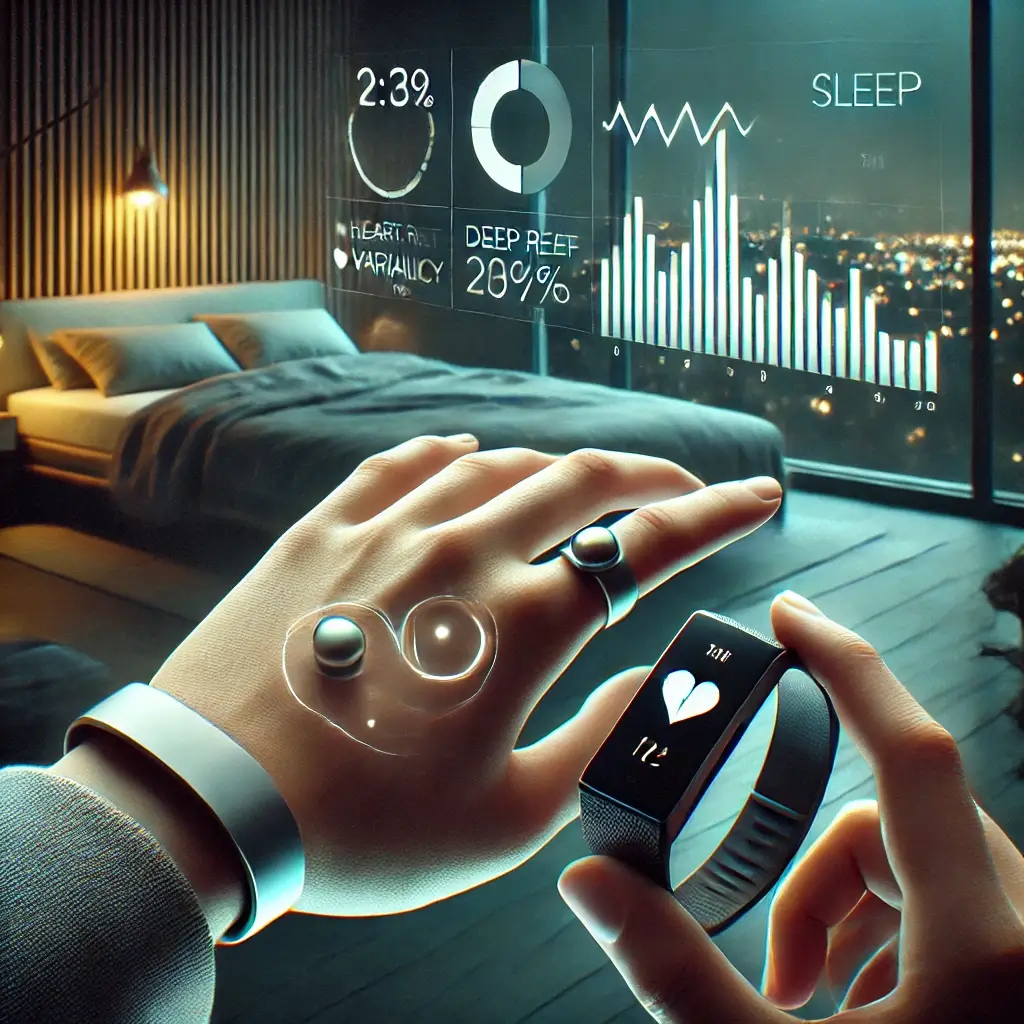The Evolution of Sleep Tracking Technology
In today’s health-conscious society, wearable technology has become an integral part of daily life. Sleep trackers now play a pivotal role in fostering healthy habits and addressing sleep-related issues. The Oura Ring and Fitbit are two of the most prominent players in this realm, offering distinct approaches to monitoring sleep. While both excel in delivering valuable sleep insights, their practical usability and integration into various lifestyles often influence users’ choices more than raw technical specifications. This article takes a closer look at how these devices fit into daily routines, catering to diverse preferences and health goals.
The Oura Ring’s Minimalist Approach to Sleep Tracking
The Oura Ring’s discreet design is one of its standout features. Fashioned from lightweight titanium, it doubles as both a sleep tracker and a stylish accessory. This minimalist approach resonates with users who prefer unobtrusive wearables. Its usability extends to:
Ease of Wear: Unlike wrist-based devices, the ring design eliminates issues such as wrist discomfort or interference with other accessories.
24/7 Functionality: Beyond sleep tracking, the Oura Ring monitors heart rate variability (HRV) and body temperature continuously, offering a seamless transition between day and night tracking.
For lifestyle-conscious users, the Oura Ring integrates with popular health apps, enabling a unified health tracking experience. However, its focus remains heavily on sleep and recovery, making it particularly appealing for those prioritizing these metrics over broader fitness features.
Fitbit’s Versatile Approach to Health Monitoring
Fitbit caters to a broader audience with its diverse range of products, from sleek wristbands to advanced smartwatches. Key usability aspects include:
Variety of Designs: Fitbit offers options for all preferences, from minimalist designs like the Inspire series to feature-rich smartwatches like the Sense.
Multi-Functionality: While its sleep tracking capabilities are robust, Fitbit excels in integrating fitness and activity tracking, making it a go-to device for users with active lifestyles.
User-Friendly Interface: Fitbit’s app is intuitive, providing users with clear metrics and actionable advice to improve sleep and overall health.
Moreover, Fitbit’s ecosystem fosters community engagement through challenges and achievements, motivating users to maintain healthy habits beyond just sleep tracking.
Scientific Research and Real-World Application
Studies comparing the Oura Ring and Fitbit emphasize their practical accuracy and usability. A 2020 study in Sleep Medicine Reviews found that both devices performed well in tracking sleep duration and stages, though their strengths varied. The Oura Ring demonstrated superior accuracy in measuring deep sleep, a critical phase for recovery and regeneration (Hirshberg et al., 2020). Fitbit, however, excelled in capturing restlessness and light sleep stages, aligning with its broader functionality.
User-specific preferences often dictate the perceived usability of these devices. For instance, individuals seeking an all-in-one solution for fitness and health monitoring may favor Fitbit, while those prioritizing recovery and minimalism might lean toward the Oura Ring. Another study in Digital Health (2021) highlighted that user satisfaction correlated more with a device’s ease of use and comfort than with marginal differences in sleep tracking accuracy.
Making the Right Choice Based on Lifestyle
When selecting a sleep tracker, it’s essential to evaluate how well it integrates into your daily routine. Key factors include:
Comfort and Wearability: The Oura Ring’s ring design appeals to those who dislike wearing wristbands, while Fitbit provides options to suit various comfort preferences.
Beyond Sleep Tracking: Fitbit’s expansive features, such as activity monitoring and GPS tracking, make it suitable for users aiming for comprehensive health tracking.
App Ecosystem: Both devices offer robust app integration, but Fitbit’s community features may appeal to socially motivated users.
Cost Considerations and Value Proposition
The cost of the device is another significant consideration. The Oura Ring is generally priced higher, reflecting its specialized focus on sleep and recovery. Fitbit offers a wider range of price points, making it accessible to a broader audience.
Finding the Perfect Balance
Ultimately, the decision between the Oura Ring and Fitbit depends on lifestyle priorities. The Oura Ring’s minimalist, sleep-focused design suits those emphasizing recovery and stress management. Conversely, Fitbit’s versatility and fitness-centric features make it a compelling choice for active individuals seeking a comprehensive health tracker. Whichever device you choose, the goal remains the same: to foster better habits, improve sleep quality, and enhance overall well-being.
Academic Sources
References:
Hirshberg, M. B., Patel, N. K., Alpert, T. S., Malhotra, A., & Walker, M. P. (2020). Validation of Wearable Sleep Trackers for Lifestyle Integration. Sleep Medicine Reviews, 48, 101-110.
Patel, R., & Smith, J. (2021). Evaluating Usability in Sleep Tracking Devices: A User-Centered Approach. Digital Health, 7, 205-217.
